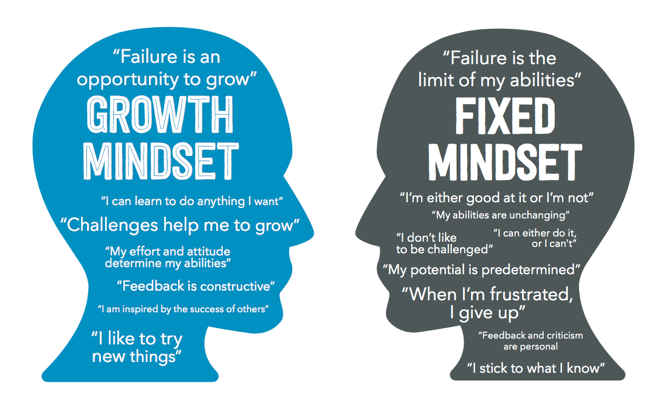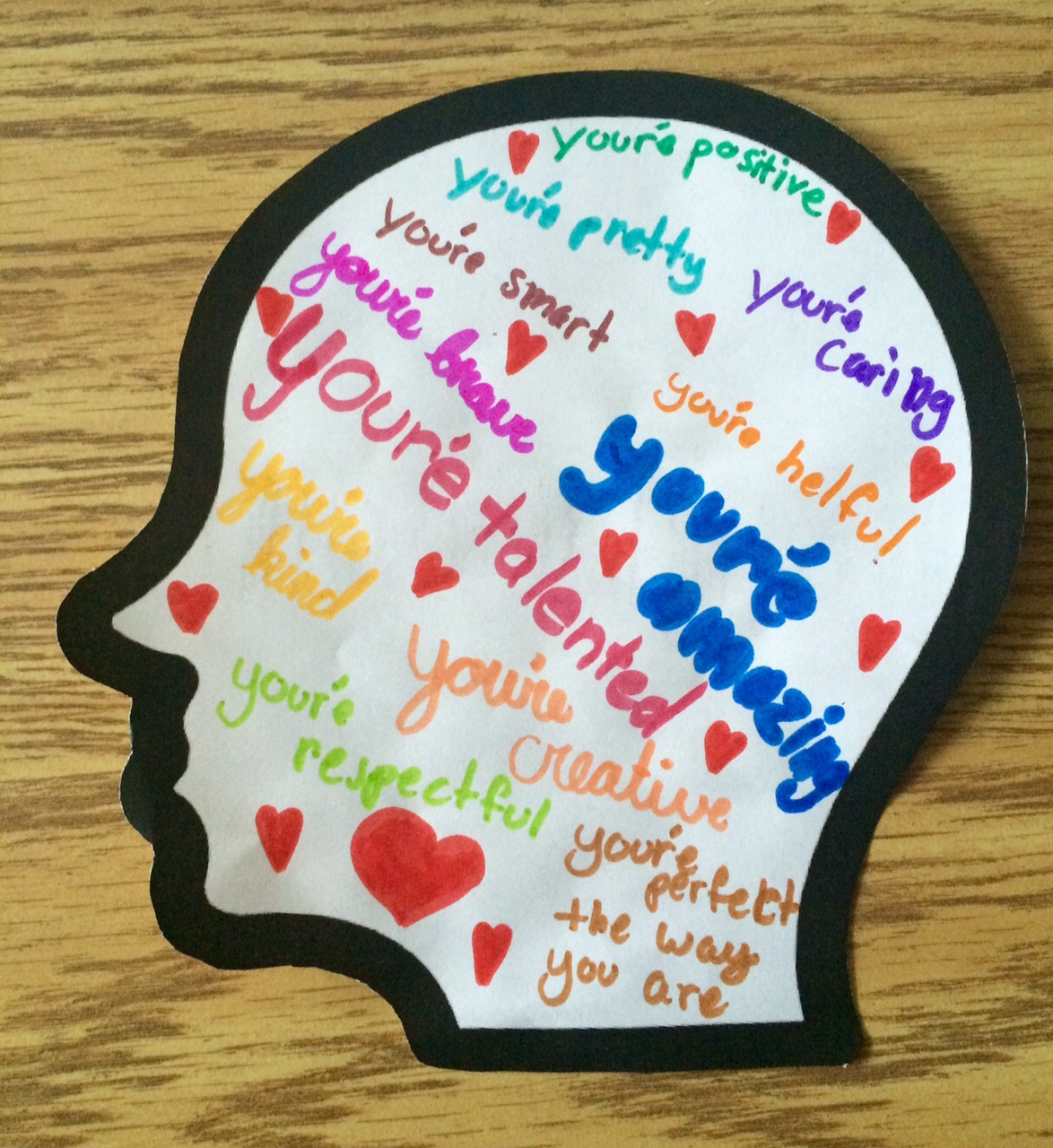Positive Self-Image through Growth Mindset
“Motivated students can conquer all; unmotivated kids on the other hand, who hold back because they think they can’t change themselves are destined to a long and tedious trail through their school years.”
Today’s generation of students are very different than the last. Children experience a number of different influences each and every day, such as friends, family, and teachers, and when you combine all that with celebrities, social media, and advertisements, students have no choice but to look inward. Our self-talk is an important part of our well-being; are we confident with the person that we are and the talents that we have, or are we inadequate in the standards that others put on us? The stories you tell yourself and the things you believe about yourself can either prevent change from happening or allow new skills to blossom. This, ladies and gentlemen, is the difference between a growth and fixed mindset.
 As teachers, we must look at each of our students and identify the potential that they have, even when they do not recognize it in themselves. Students can think that they’ll never be as smart as ____, or as athletic as ____, or as popular as ____. But this inability to even consider or explore their potential is extremely damaging. The worst part is that teachers all too often play into this mindset for their students. We assume that a student will perform well on a test because they always do, but we never acknowledge how much they study or pay attention in class. Alternatively, we assume that a student will act out in class because they always do, without wondering about why the student is not engaged or distracted. To combat this trend and help instill a growth mindset into our students, we must focus on praising student work habits, encouraging effort, and supporting students’ potential rather than focusing on natural talent and abilities. In other words, we must believe in each and every one of our students and their potential to be amazing.
As teachers, we must look at each of our students and identify the potential that they have, even when they do not recognize it in themselves. Students can think that they’ll never be as smart as ____, or as athletic as ____, or as popular as ____. But this inability to even consider or explore their potential is extremely damaging. The worst part is that teachers all too often play into this mindset for their students. We assume that a student will perform well on a test because they always do, but we never acknowledge how much they study or pay attention in class. Alternatively, we assume that a student will act out in class because they always do, without wondering about why the student is not engaged or distracted. To combat this trend and help instill a growth mindset into our students, we must focus on praising student work habits, encouraging effort, and supporting students’ potential rather than focusing on natural talent and abilities. In other words, we must believe in each and every one of our students and their potential to be amazing.
“When a teacher has an astonishing impact on a student’s life, it is because of one and only one thing: his or her complete belief in that student.”
In my own teaching practice, I often find myself seeking opportunities to compliment or acknowledge a student’s work ethic, especially those who I often find do not get the final answer correct. For those students, it could feel as though they are never going to get the final answer correct, but by making an effort to compliment them on an aspect of their process or their work ethic in general, these students will begin to internalize their efforts as positivity.
During my first practicum, I did an activity with my students that centred around self-image. You can read about it in detail HERE. Essentially, I wanted my students to figuratively throw away all of this external, negative rhetoric that is spewed at them and focus on their internal, positive self-talk. This leads students to feel more in tune with their intrinsic motivation; the drive behind why they do anything at all.

I really like the idea of the TESA Studies: Teacher Expectation, Student Achievement. I believe this concept find a good balance between teacher’s having expectations of their students, with that of student achievement. Yes, students are expected to do certain things, but the students are also acknowledged for complying. Here are 15 TESA expectations:
- Equitable opportunity to respond – Ensuring every student has equal chances to respond
- Affirmation or correction, coaching, and feedback comment
- Proximity – Nearness to students for managing behaviours
- Individual helping – One-on-one tutorials
- Praise – For the learning performance or effort
- Courtesy – Polite manners, good etiquette
- Latency – Wait time, let students think
- Reasons for praise – Why, not just what
- Personal interest statements – Notice
- Delving, rephrasing, giving clues
- Listening – Attention to student comments
- Touching – Hand on a shoulder to encourage or affirm
- Higher-level questioning – Fostering deeper thinking
- Accepting feelings – Affirming, confirming, encouragement
- Desisting – Not letting student-to-student teacher challenges escalate
Lets help to create confident, driven, and successful students. They are our future, and they need to feel “able” to accomplish anything they set their mind to.